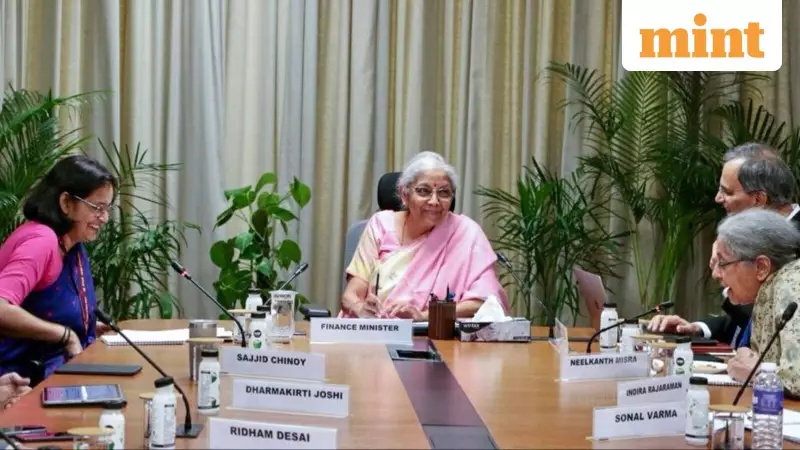
Budget 2026-27 Preparations Begin with Key Economic Inputs
Finance Minister Nirmala Sitharaman officially launched the pre-budget consultation process on Monday by engaging with some of India's most prominent economists. The meeting marked the beginning of a comprehensive dialogue that will shape the government's fiscal strategy for the upcoming Union Budget 2026-27.
The discussions saw economists strongly advocating for the government to prioritize three critical areas: manufacturing sector growth, job creation initiatives, and productivity enhancement measures. These recommendations come at a crucial time as India continues to navigate global economic uncertainties while maintaining its domestic growth trajectory.
High-Profile Participants and Key Discussions
The consultation brought together a distinguished group of macroeconomic and agricultural experts from both academic institutions and industry. Among the notable attendees were Neelkanth Mishra from Axis Bank and the Economic Advisory Council to the Prime Minister, Sajid Chinoy of J.P. Morgan, Ridham Desai from Morgan Stanley, and Dharmakirti Joshi of CRISIL.
The meeting was conducted in the presence of senior government officials including Department of Economic Affairs secretary Anuradha Thakur and Chief Economic Adviser V. Anantha Nageswaran. Their participation ensured that the economists' recommendations would receive direct consideration at the highest levels of economic policymaking.
Other significant contributors to the discussion included Sonal Varma from Nomura, Tanvee Gupta Jain of UBS, and Pranjul Bhandari from HSBC, representing a broad spectrum of economic thought and expertise.
Comprehensive Consultation Process Ahead
This initial meeting represents just the starting point of an extensive pre-budget consultation schedule that Finance Minister Sitharaman will conduct over the coming weeks. The process typically encompasses a wide range of stakeholders across multiple sectors of the economy.
The finance minister's consultation roadmap includes sessions with farmer associations, agricultural economists, trade unions, and representatives from education and health sectors. Additionally, employment and skilling bodies, MSME representatives, trade and services groups, and industry associations will provide their inputs.
The consultation chain will extend to financial sector experts, capital market participants, and infrastructure, energy, and urban development stakeholders. This comprehensive approach ensures that the final budget document reflects ground-level realities across all major economic segments.
Building on Previous Budget Framework
The Union Budget for 2025-26, presented earlier this year in February, established a framework for inclusive and resilient growth amid global challenges including rising trade tariffs, supply chain realignments, and ongoing geopolitical tensions.
That budget successfully balanced welfare measures with reform initiatives, giving particular attention to agriculture, MSME development, and rural prosperity. It also aimed to stimulate private enterprise through increased capital expenditure, innovation incentives, and targeted tax relief designed to boost consumption.
The Ministry of Finance, in its latest Monthly Economic Review, indicated that recent reductions in Goods and Services Tax rates are expected to strengthen domestic demand by reducing the tax burden on both consumers and businesses. This GST overhaul, effective from September 22, simplified the tax structure by reducing the number of slabs from four to two while maintaining higher rates for luxury and sin goods.
The ministry noted that strong performances in industrial and services sectors, combined with stable labor market conditions, are likely to sustain economic momentum in the coming months. However, officials cautioned that persistent global uncertainties could potentially dampen export performance and external demand, creating downside risks to overall growth projections.
The Union Budget is traditionally presented on February 1 each year, making these pre-budget consultations critical for gathering diverse perspectives and crafting policies that address both immediate challenges and long-term economic objectives.





